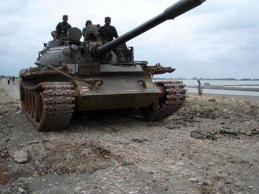 Chennai/Colombo, Dec 29: Tamil Prabakaran (24), a Tamil Nadu-based journalist arrested in Colombo on Thursday reached Chennai on Saturday after he was deported by the Sri Lankan government.
Chennai/Colombo, Dec 29: Tamil Prabakaran (24), a Tamil Nadu-based journalist arrested in Colombo on Thursday reached Chennai on Saturday after he was deported by the Sri Lankan government.
"I was tortured psychologically by the Lankan army personnel," Prabakaran said soon after landing in Chennai. Speaking to reporters at the airport, Prabhakaran denied violating any rules while visiting Killinochchi. "I will fight for the Tamil cause and will approach the UN Human Rights Council against the abuses by Sri Lanka," he said.
Prabhakaran was arrested by the Lankan army personnel for allegedly filming military installations in Killinochchi, a former LTTE stronghold, without media credentials.
Prabakaran was deported and sent back on a Chennai flight at 6.40pm (local time), police spokesman Ajith Rohana said in Colombo.
Prabakaran was earlier handed over to immigration authorities after being questioned by the police's Terrorism Investigation Division. After the questioning, all the footage shot by Prabakaran was deleted. "As such there was no reason for him to be prosecuted," Rohana said.
Prabakaran, arrested on Wednesday, allegedly filmed a military camp, a road and buildings devastated during the ethnic war. Police said Prabakaran had arrived in Sri Lanka on a tourist visa and violated rules by not informing authorities that he was on an assignment to report from the former war zone.
Local media described him as a LTTE sympathiser. Indian diplomats were granted consular access to Prabakaran before he was deported. There is no official censorship in Sri Lanka but foreign journalists have to submit their passport to the military before entering the erstwhile LTTE stronghold.
Kilinochchi was the administrative centre of the Tamil rebels until January 2009, when Sri Lankan forces recaptured the city.
Political parties and journalist federations in Chennai and other parts of the state had voiced their concern over the arrest of Prabakaran and wanted the Centre to intervene to seek his release.
"Prabakaran was a journalist and had every right to visit any country on a tourist visa and the freedom to meet people," said MDMK chief Vaiko. He said Prabakaran had accompanied Sri Lankan Tamil MP S Sritharan and Pasupathi Pillai, an elected member of the Northern Province council, when they visited Ponnavili, a village in Kilinochchi district. "When Sritharan and Prabhakaran were interacting with a Christian priest, they were surrounded by Sri Lankan armymen and taken into custody. The army released Sritharan in the evening," he claimed.
The Chennai Press Club and Chennai Union of Journalists wrote to the external affairs ministry, explaining that Prabakaran had written a series of articles in a Tamil journal about the plight of Sri Lankan Tamils, which was subsequently published as a book.






Comments
Add new comment